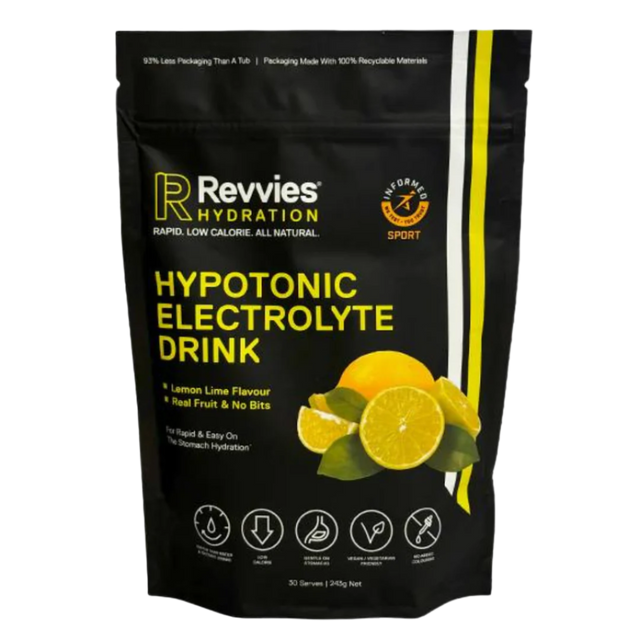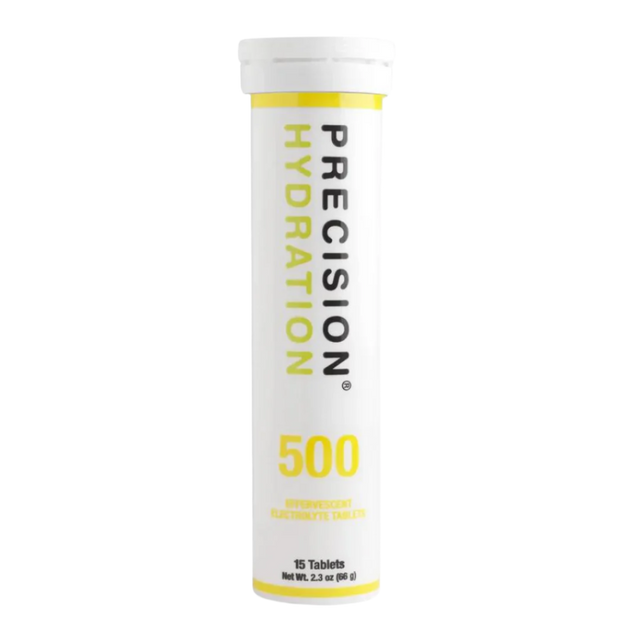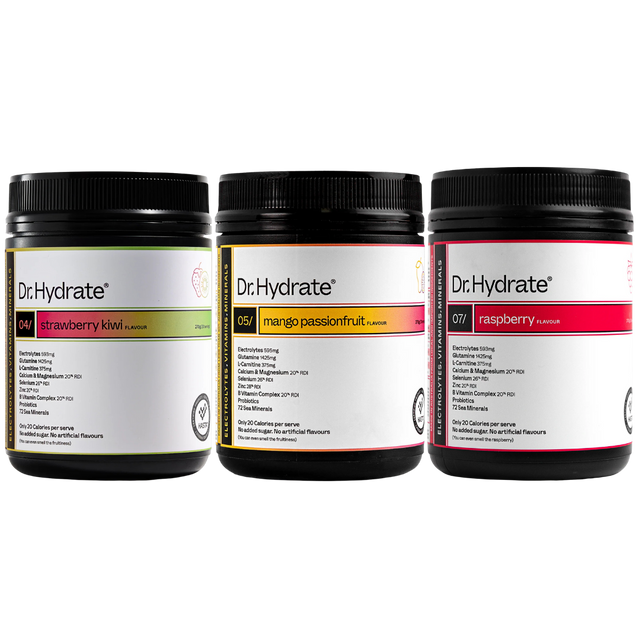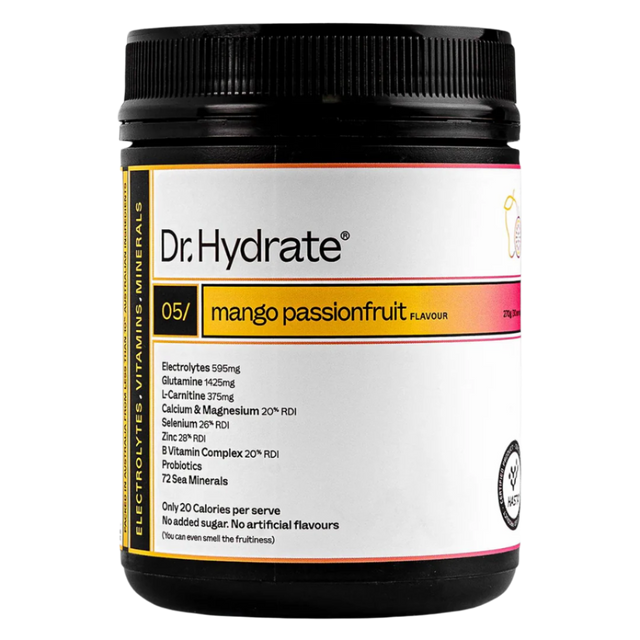Everyday Hydration for Endurance Athletes
Everyday dehydration could be secretly sabotaging your stamina, slowing your splits, and messing with your mood. The crazy thing is you might not even know it. Nearly 1 in 3 athletes start workouts already dehydrated. Finishing workouts dehydrated is even more common. But here's the game-changer, hydration isn't just for recovery or race day, it's your daily performance edge. From gut-friendly electrolyte hacks to sneaky hydration boosters hiding in your kitchen, we’re diving into how to hydrate smarter, every single day.
Why Do We Need To Stay Hydrated?
Nearly 1 in 3 athletes start workouts already dehydrated and almost half finish workouts dehydrated (1). Proper hydration powers your performance by maintaining energy levels, supporting muscle function, regulating body temperature, and preventing fatigue and overheating. Staying hydrated also sharpens focus, boosts endurance, and keeps your overall health on point. Just a 2% drop in body weight from fluid loss is enough to slow you down, drain your energy, and hurt your results (2).
How Much Water Do We Need?
On average, about 20-30% of our daily water intake comes from the food we eat. Water-rich foods like fruits (e.g. watermelon, oranges) or vegetables (e.g. cucumber, lettuce) soups, and yogurt contribute the most. The rest [about 70-80%] comes from drinks like water, milk, and juice. Below are guidelines for how much fluid we need.
-
For general everyday hydration aim for 30-35 mL/kg/day of water (3).
-
Endurance athletes are recommended to add 100-150 mL of fluid every 15–20 minutes during exercise (2).
What Are Electrolyte Supplements & Can We Consume Them Everyday?
The definition of hydrate is to combine chemically with water. An electrolyte mix is usually a powdered or tablet form of electrolytes with or without the presence of carbohydrates, protein or other minerals.
Choosing the right electrolyte mix is essential for optimal hydration but also the health of athletes. Hypotonic electrolyte mixes are usually the best for everyday hydration outside of exercise. This is because they are low in sugar, often lower in sodium, absorbed quickly from your gut into your bloodstream and are usually gentler on the gut. Electrolyte supplements can be consumed every day if chosen and used appropriately.
-
Sodium intake→ General recommended daily sodium intake is less than 2,300mg/day (4).
-
Endurance athletes are recommended to add an extra 300-700 mg of sodium per hour of exercise (5).
-
Athletes who sweat heavily or have a high sweat sodium concentration may require higher sodium intake (6).
Some examples of hypotonic electrolyte mixes that can be consumed everyday when combined with a balanced, whole food diet:
-
Dr Hydrate All-In-One-Drink → For those who want zero sugar, zero artificial ingredients, plant based, Aus made and HASTA certification.
-
Nuun Sports Hydration Tablets→ For those who like effervescent tablets.
-
Cadence Electrolyte Drink→ For those who want electrolytes in a can.
-
Revvies Hydration Hypotonic Electrolyte Drink→ For those who want fast-absorbing hydration with a low-osmolality formula.
-
Precision Fuel & Hydration PH 500 Electrolyte Drink Mix→ For those who like mild citrus flavours, waterproof packets and products that are Informed Sport Batch Tested.
Here are some fun diverse ways you can use electrolyte drinks for hydration:
-
Add everyday electrolyte mixes such as Dr Hydrate All-In-One-Drink into your smoothies for added electrolytes and water soluble vitamins.
-
Mix electrolyte powder with natural fruit juice and freeze in molds for refreshing, hydrating popsicles.
-
Stir electrolyte powder into warm oats or porridge.
-
Add electrolyte mixes to broth-based soups or stews
-
Mix a pinch of electrolyte powder into vinaigrettes or dressings
-
Incorporate electrolyte powder in homemade baked goods
-
Add electrolyte mixes to sparkling water
Fluid Loss After Exercise
A guide for general fluid loss is to weigh yourself before an hour training session and then straight after. Don’t drink anything during the session. The total amount lost in weight is your sweat rate per hour. For hydration purposes you want to replenish 150% of fluid lost in the next few hours. For example you weigh 61kg before training then 60kg after training, therefore you need to replenish 1.5L of available hydration in the next few hours.
For more information on how to calculate your hydration loss read this article.
Ash Miller
Dietitian and Nutritionist (Masters)
Bachelor of Physical and Health Education
Instagram: @ashthomo_nutrition
Disclaimer:
The content in this blog is for general information only and is not a substitute for professional medical advice, diagnosis, or treatment. Always speak with your doctor or allied health team before changing your diet, exercise, or taking supplements, especially if you have a health condition or take medication. Please use this information as a guide only. Aid Station doesn't take responsibility for individual outcomes.
References
-
Chapelle L, Goosey-Tolfrey VL, Burdett-Smith P, et al. Prevalence of hypohydration in athletes across a wide range of sports. Int J Sport Nutr Exerc Metab. 2017;27(2):158–166. doi:10.1123/ijsnem.2016-0173
-
Sawka MN, Burke LM, Eichner ER, Maughan RJ, Montain SJ, Stachenfeld NS. American College of Sports Medicine position stand: Exercise and fluid replacement. Med Sci Sports Exerc. 2007;39(2):377–390. doi:10.1249/mss.0b013e31802ca597
-
Sawka MN, Cheuvront SN, Carter R 3rd. Human water needs. Nutr Rev. 2005 Jun;63(6 Pt 2):S30-9. doi:10.1111/j.1753-4887.2005.tb00152.x.
-
National Health and Medical Research Council. Nutrient Reference Values for Australia and New Zealand. Canberra: NHMRC; 2006.
-
Sawka MN, Burke LM, Eichner ER, Maughan RJ, Montain SJ, Stachenfeld NS. American College of Sports Medicine position stand: Exercise and fluid replacement. Med Sci Sports Exerc. 2007 Feb;39(2):377–90.
-
Lara, B., Gallo-Salazar, C., Puente, C. et al. Interindividual variability in sweat electrolyte concentration in marathoners. J Int Soc Sports Nutr 13, 31 (2016). https://doi.org/10.1186/s12970-016-0141-z






![Dr. Hydrate - All-In-One Drink - Lychee Lime [Limited Edition]](http://aidstation.com.au/cdn/shop/files/dr-hydrate-lychee-lime-jar.png?v=1732594998&width=640)










